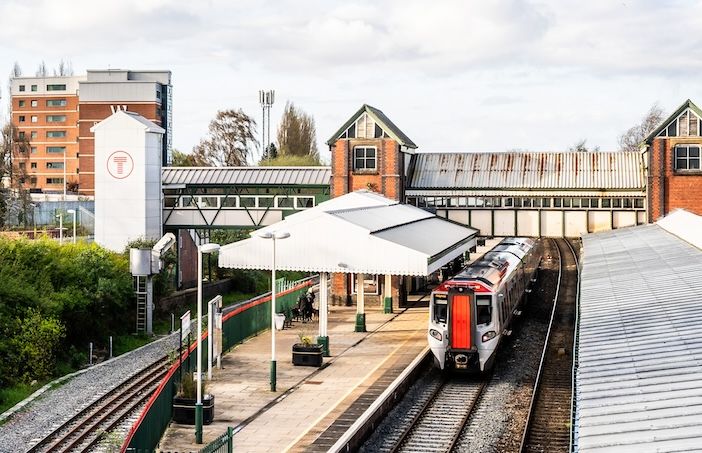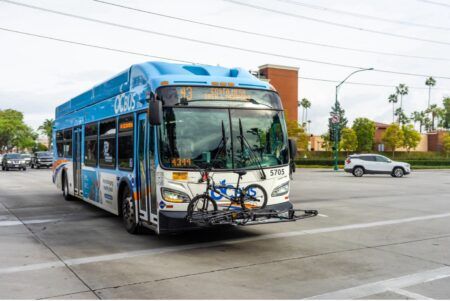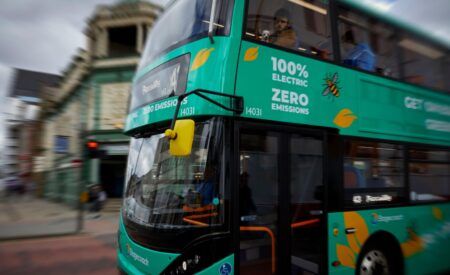An ambitious plan to revolutionize public transport across North Wales was unveiled yesterday (May 22, 2025), promising metro-style train services and integrated bus networks that officials say will drive economic growth and better connect communities across the region.
Network North Wales, announced by Cabinet Secretary for Transport and North Wales Ken Skates at Wales’ first-ever Public Transport Summit in Wrexham, represents what he called “the best possible partnership” between UK and Welsh governments, local authorities, and Transport for Wales to deliver unprecedented transport improvements.
“Metro is go,” Skates declared, outlining a comprehensive vision that extends from immediate improvements starting within the next twelve months to longer-term objectives reaching 2035 and beyond.
The centerpiece of the plan is the development of metro-style train services on three key routes: the North Wales mainline, the Marches line between Chester and Wrexham, and a new direct rail link between Wrexham and Liverpool. Work on the Wrexham-Liverpool connection will commence as the crucial first phase of delivering direct metro services between the two cities.

Passengers will see immediate benefits as early as next May, when train services between Wrexham and Chester will double in frequency. The plan also brings forward the introduction of 50% more services across the North Wales mainline from December 2026 to May 2025, creating a new service from Llandudno to Liverpool and extending the Manchester Airport service to Holyhead.
The existing Borderlands Line will be renamed the Wrexham-Liverpool line, with key stations along the route receiving improvements over the next year. In a unique touch that reflects local pride, trains operating on this line will be wrapped to celebrate the communities and football clubs they serve.
Technology improvements will modernize the passenger experience through the introduction of Pay as You Go tap-in, tap-out technology covering connections between Gobowen and Rhyl and along the full length of the Wrexham-Liverpool line. “This is the tap on tap off deployment most of us only experience in London,” Skates noted.
The Welsh Government has committed over £13 million to begin immediate delivery and will draw on additional funding streams to realize the full vision. A new multi-million pound electrification innovation fund will develop plans to decarbonize the railway in North Wales, enabling more frequent metro services and additional stations.
Rail Minister Lord Hendy emphasized the collaborative nature of the project, stating that the governments are “determined to build a modern and integrated transport network across the whole of the UK” that will drive economic growth “by better connecting people to homes, jobs, education and business opportunities.”
Beyond rail improvements, the plan includes significant bus network enhancements, including a new T13 service connecting Rhyl, Ruthin, Denbigh and Wrexham, and a specialized bus network linking communities with industrial estates in the Flintshire and Wrexham Investment Zone.
The program also envisions the development of Gateway multi-modal interchanges at Holyhead, Bangor, Caernarfon and Wrexham, creating seamless connections between different transport modes. Officials are working with Network Rail to explore the rapid delivery of a test railway station at Deeside Industrial Park to gauge demand for permanent services.

Secretary of State for Wales Jo Stevens highlighted the economic imperative behind the investment, noting that “economic growth is the number one mission of the UK Government and improving transport is vital to achieve that ambition.” She emphasized how the improved connectivity will link people to well-paid jobs, including thousands expected to be created through the Wrexham and Flintshire Investment Zone and the Anglesey Freeport.
Within three years, train services between Wrexham and Bidston will increase to two per hour following completion of rail line works at Padeswood, building toward the ultimate goal of four trains per hour running direct between Wrexham and Liverpool by 2035.
The comprehensive plan builds on the £800 million investment in new trains, the majority of which are already serving the North Wales region, and follows the success of the South Wales Metro. Skates emphasized that this represents the same level of ambition now being brought to North Wales.
“This is a long term vision, which begins now with real changes,” Skates said, noting that the plan “should outlast any single Minister, Government or economic and political circumstances.” The network aims to extend what officials call the Northern Arc from Hull to Holyhead, creating unprecedented connectivity across northern Britain.
Looking ahead, longer-term objectives include reopening closed stations, creating new stations in employment growth areas, and exploring innovative transport modes such as tram trains. The plan also includes match funding for step-free access improvements at Shotton and Ruabon stations.
The announcement represents what officials describe as “delivery at an unprecedented pace” for a region that stands to benefit significantly from improved transport links. As Skates concluded, the ultimate goal remains clear: “to deliver the principal purpose of public transport – to drive economic growth and prosperity for all.”





